Monthly Expenses Climb To Double Average Wages In Iran
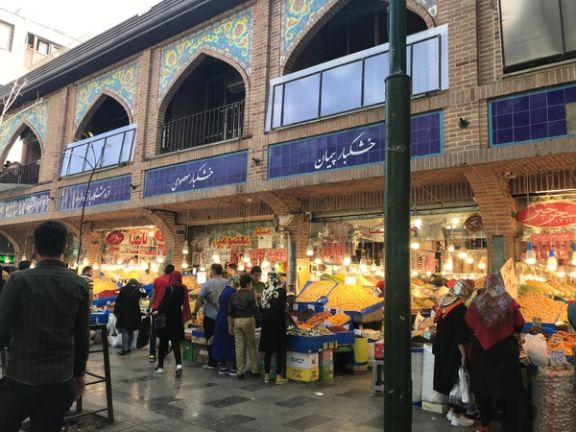
An official in charges of setting wages in Iran says that the monthly living basket for a family has risen to more than double the income of an average worker.

An official in charges of setting wages in Iran says that the monthly living basket for a family has risen to more than double the income of an average worker.
The head of the supreme labor committee said on Thursday that a basket of essential supplies for a family of 3 has reached 115 million rials. Although in today’s exchange rate that amounts to just $425, but a typical worker in Iran receives much less than $200 a month.
Faramarx Tofighi told the Iranian Labour News Agency (ILNA) that a worker’s wages would just be enough for buying the minimum amount of food for a family while rent and other expenses would go unpaid.
Iran’s overall inflation rate has reached nearly 50 percent, while food prices have risen much faster. ILNA said that on average food prices have gone up by 66 percent. Half of all families have stopped buying meat and fruits.
With US sanctions since 2018, the national currency has dropped almost ninefold, dropping to 270,000 rials for a US dollar.
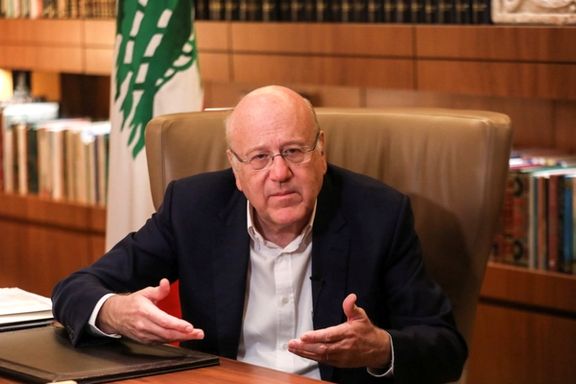
Lebanon's prime minister Najib Mikati Thursday repeated his call for information minister Georges Kordahi to step down over a diplomatic rift with Saudi Arabia.
Mikati said the resignation would help resolve a crisis that's destabilized the Lebanese government and made the country's economic plight even worse.
He also had stern words for his partners in government — the militant Hezbollah group and its allies — who have rejected calls that Kordahi resign.
The spat was triggered by Kordahi's remarks aired last week about the war in Yemen, where a Saudi-led coalition is battling Iran-backed Houthi rebels.
Riyadh has withdrawn its ambassador from Beirut and asked the Lebanese envoy to leave the kingdom.
It has also banned Lebanese imports, undermining the small nation's foreign trade and depriving it of millions of dollars while it is deep in an economic crisis.
Lebanon had sought French and US mediation with Saudi Arabia.
Mikati's message appears to be directed mostly at his government partners from the Iran-allied Hezbollah.
Kordahi was named to the government by part of the Hezbollah alliance within the government.
He has refused to resign, insisting Yemen's Houthis have the right to defend themselves and saying he did not mean to offend with his comments, recorded before he became minister.
Gulf Arab countries have joined Saudi Arabia in pulling out their diplomats, deepening the diplomatic spat.
Report by AP
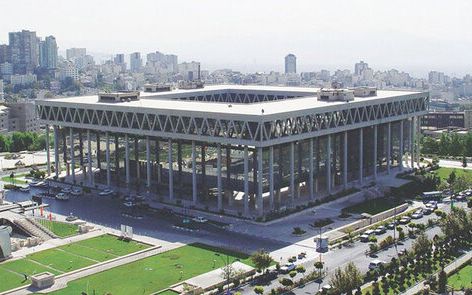
Two days after Iran International TV revealed in an investigative television report that the new chief of Iran's state television had fired two top managers, media in Tehran confirmed the news on Wednesday.
The two fired managers are Abdolreza Bavali the head of the state TV's rolling news channel and Mehrdad Seyedmehdi the head of the state television's newsroom, aka, IRIB News Agency. Bavali was fired after “undermining” new state TV chief Payman Jebelli's "success" in changing the broadcaster's secretive approach to sensitive news and its censorship of developments that had been already leaked on social media.
The state TV, officially called the Islamic Republic of Iran's Broadcasting Organization (IRIB) operates under Supreme Leader Ali Khamenei's direct supervision and its CEO is appointed by him every five years.
Jebelli’s change of approach has been observed at least during three recent developments. Unlike past practice of censoring sensitive news about regime officials, IRIB broadcast the video of an IRGC general being slapped in the face during his inauguration ceremony as the governor general of East Azarbaijan Province. The broadcaster also covered a controversy about the appointment of a son-in-law of Tehran's mayor as his deputy and the nationwide disruption of an electronic system in Iran’s gas stations.
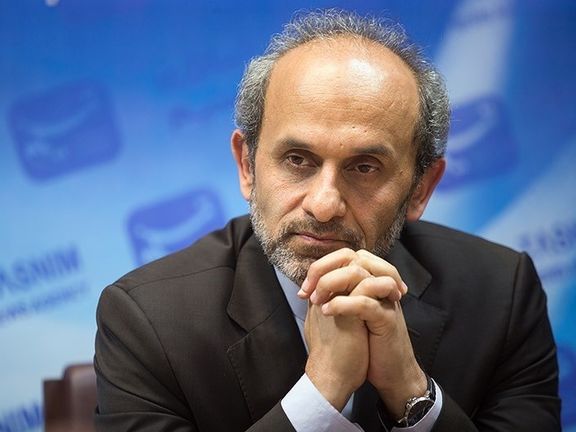
Jebelli took pride in bringing about the changes ina special edition of the state TV's daily newspaper Jam-e Jam which dedicated several pages in which media experts and professionals praised his performance. Subsequently, Bavali released an audio that undermined Jebelli's performance and said what he did was nothing new.
Bavali later sent out another audio clip in which he said Jebelli was infuriated after he listened to the first audio file. He also said that he was not able to convince Jebelli that he was right, and he did not mean to undermine Jebelli's decision. He added that he knew he was going to be replaced sooner or later.
Mehrdad Seyedmehdi was fired after he undermined the importance of broadcasting the news about the gas stations in an October 31 tweet in which he said there were more important developments on that day to be covered by the network.
Meanwhile, Seyedmehdi addressed Iran International in another tweet on 1 November and said the change of management at the Iranian state TV was "a family matter."
The Iran International report had assessed the development as a move to enforce Supreme Leader Ali Khamenei's new media strategy, which has been trumpeted, but few know what exactly it is. Khabar online in its assessment of the development, which was released as a video report, called it "The state TV chief's Overnight onslaught against the 30-year-old system of news dissemination" at the organization.
According to Khabar Online, the change that was made overnight on November 2 was expected since Jebelli took office in late September. The report opined that "now the system is unified and is totally under Jebelli's control. The report added that the new state TV Chief can apply his own development plan which will turn the national broadcaster into "a single news dissemination system."
Khabar Online further explained that the offices of the political deputy, the state TV newsroom, and the rolling news channel will be merged to create one single organization that puts an end to the three organization's separate operations.
Jebelli's declared mission is to return the nation's lost trust in the IRIB. The Broadcaster has been losing its viewers since 2009 and particularly after the 2017 presidential election and the latest poll conducted in Iran said the state TV's popularity dropped by another 15 percent between March and September 2021.
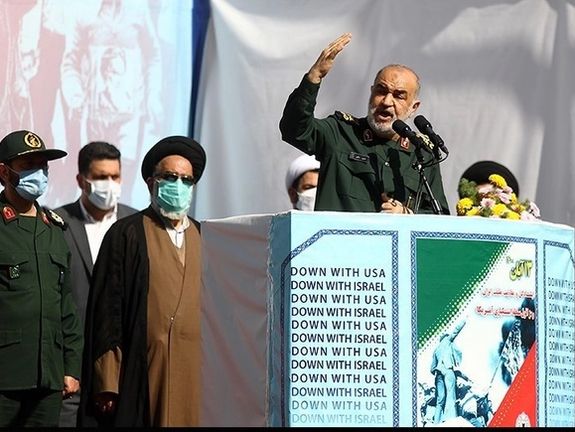
The United States has not “learned a lesson” from the seizure of its embassy in Tehran in 1979, the commander of Iran’s IRGC said on the event's anniversary.
Major-General Hossein Salami told crowds outside the former embassy that the US had not accepted its defeat by the Iranian people, 42 years after the 444-day confinement of its diplomats, embassy staff and soldiers.
November 4 marks both the National Day of the Fight against Global Arrogance – the US – as well as National Student Day and government-organized rallies are held to mark the occasion.
President Ebrahim Raisi (Raeesi), attending a rally while touring Semnan province, accused the US of "70 years of hostility towards Iranian people,” referring to the US-backed coup of 1953 that overthrew prime minister Mohammad Mossadegh and restored the Shah.
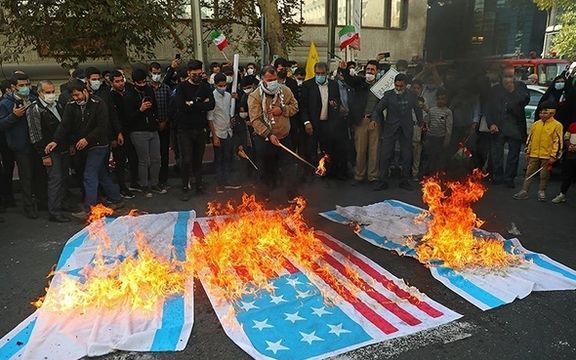
Raisi insisted that Iran remained committed to securing the lifting of all US ‘maximum pressure’ sanctions in talks with world powers in Vienna aimed at restoring Iran’s 2015 nuclear agreement.
In his speech at the former US embassy, Salami highlighted Iran’s charge, relayed by state media November 3, that the US on October 23 tried to seize an Iranian oil shipment in the Sea of Oman, only to be thwarted by the IRGC. The US, which threatens punitive action against buyers of Iranian oil under ‘maximum pressure’ sanctions, has given a different account of the incident.
Salami charged the US with "supporting terrorists in some regions and international oil theft in others.” The IRGC commander described Iran as the "security anchor of the region" and advised its neighbors not to "seek help for security from those who are unable to secure their own security."
A resolution read at the end of the November 4 commemorations around the country proclaimed that “the powerful and anti- global arrogance nation of Iran” had “zero trust in domineering powers headed by the terrorist and murderous US regime". The resolution called for the lifting of all sanctions, verification this had taken place, and guarantees to Iran that the US would not again abandon international agreements it signed. It also blamed the US and Israel for the recent cyberattack on the distribution of subsidized gasoline at filling stations, although Iranian officials have said they have no forensic evidence.
Last year, events for the November 4 commemorations were cancelled due to the pandemic but this year rallies are being held in city squares and other outdoor venues with attendees encouraged to follow public-health protocols. Media photos and footage have shown participants, many of whom are not wearing masks, mingling closely.
Those attending the rally outside the former US embassy, Alef news reported, were treated to a theatrical tribunal judging the “murderous leaders” of the world, with “US, Israeli and British murderers” ending up in jail.
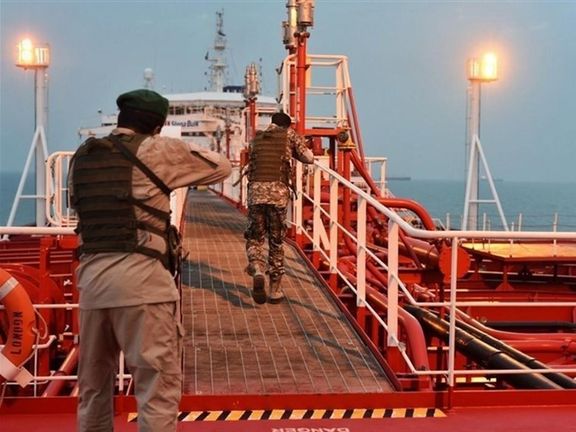
Vietnam has been in talks with Iran over the seizure of a Vietnamese oil tanker off the Iranian coast, the Ministry of Foreign Affairs said on Thursday.
"The Ministry of Foreign Affairs has held talks with the Iranian embassy in Hanoi, and the Vietnamese embassy in Iran has held talks with the Iranian authorities to verify information and settle the incident to ensure safety and humane treatment for Vietnamese citizens," foreign ministry spokeswoman Pham Thu Hang said at a regular press briefing.
The Iranian military claimed on Wednesday that "recently" the US Navy tried to seize Iranian oil from a tanker in the Sea of Oman by pumping the cargo into another tanker and carrying it away. The military further claimed that its Revolutionary Guard navy used helicopters to land forces on the second tanker and directed it to Iranian waters, despite attempts by the US Navy to intervene.
The military also published videos showing Iranian helicopters and navy speed boats taking over an oil tanker and guiding it to Iranian waters.
The Pentagon on Wednesday rejected the claims and the elaborate scenario described by the Islamic Revolution Guard Corps (IRGC) and Iran’s state-controlled media.
"I've seen the Iranian claims, they are absolutely totally false and untrue ... it's a bogus claim," Pentagon spokesman John Kirby told reporters.
"The only seizing that was done was by Iran," Kirby said.
American officials said that in reality Iranian forces had seized a Vietnamese-flagged oil tanker last month, and US naval forces were just monitoring the situation.
While Iranian media identified the seized tanker as "SOTHYS" -- the name tanker tracking websites give for a Vietnam-flagged vessel -- state TV aired footage showing a red tanker surrounded by about 10 speedboats. It also included a recording of what TV said was the encounter between Iranian and US forces. The voices heard were an Iranian officer telling a US warship not to get close and an American voice replying that we are conducting normal operations in international waters. This sort of encounters happens routinely in the Persian Gulf region.
No incident of the US Navy trying to seize oil form a tanker in October and a confrontation between Iranian and American warships was reported earlier by the two sides or other regional countries.
Separately, American officials told Reuters that several drones, believed to be Iranian, had come close to the US Navy amphibious assault ship Essex in the Strait of Hormuz in the past 24 hours.
The Iranian claims and the drone activity coincided with the November 4 anniversary of the seizure of the US embassy and diplomats in Tehran in 1979, which lasted 444 days. Iran celebrates the anniversary as a symbol of opposition to the United States. Iranian state-controlled media all carried the IRGC’s triumphant claims of humiliating the US Navy.
With reporting by Reuters
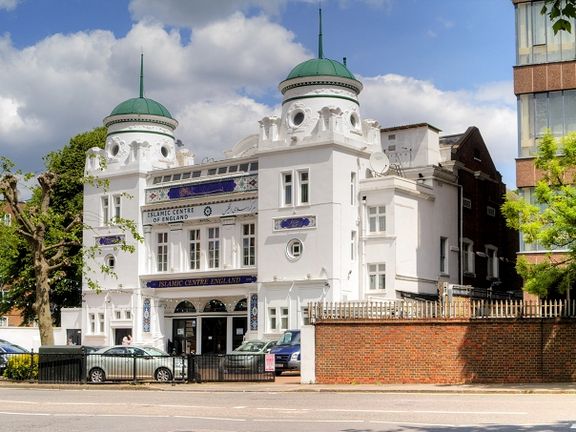
Supreme Leader Ali Khamenei’s office in London received more than £100,000 in coronavirus aid from the British government, The Times reported on Wednesday.
Official figures filed last month show that the Islamic Center of England received £109,476 from the coronavirus job retention scheme, a government program to protect jobs amid pandemic disruptions.
The Islamic Republic, controlled by Khamenei, does not allow the presence of many international institutions or non-governmental organizations in Iran, but it directly and indirectly has a network of associations and offices in the world, including Western countries.
The issue with Britain is starker, as Iran is detaining Iranian-British dual citizens on charges of sedition and espionage without due process of law.
Although Khamenei’s representative offices abroad are presented as his religious envoys, they in fact carry political weight and try to project influence both within Iranian and the wider Shiite Muslim communities in host countries.
Legally, the Islamic Center of England might have been eligible for the special government aid, but politically the episode can have repercussion in the United Kingdom, which democratically allows residents to form associations and establish foundations.